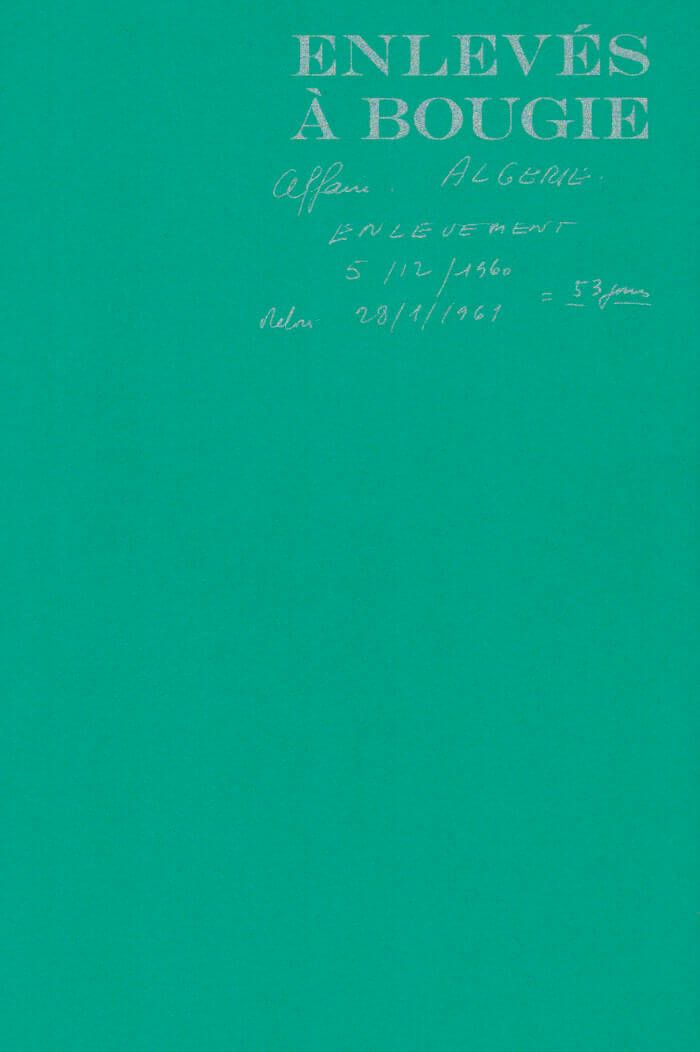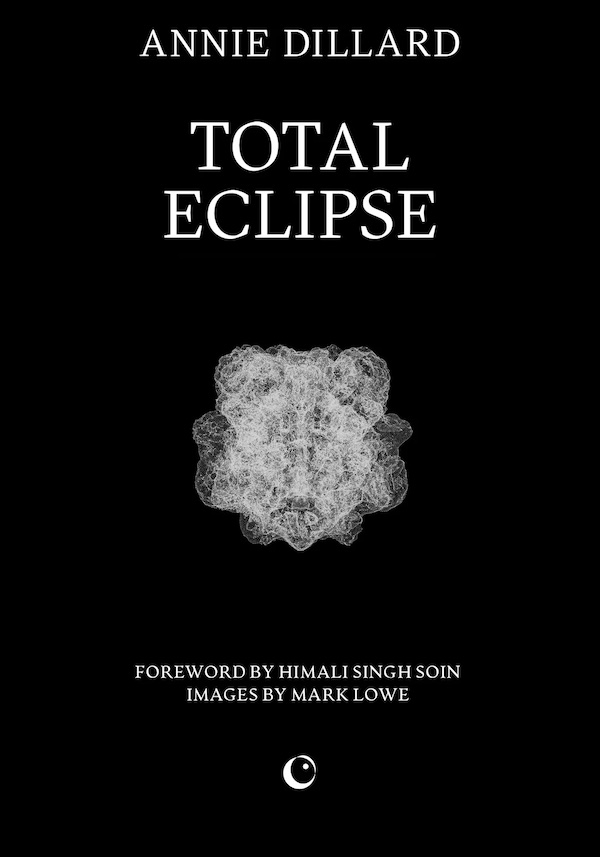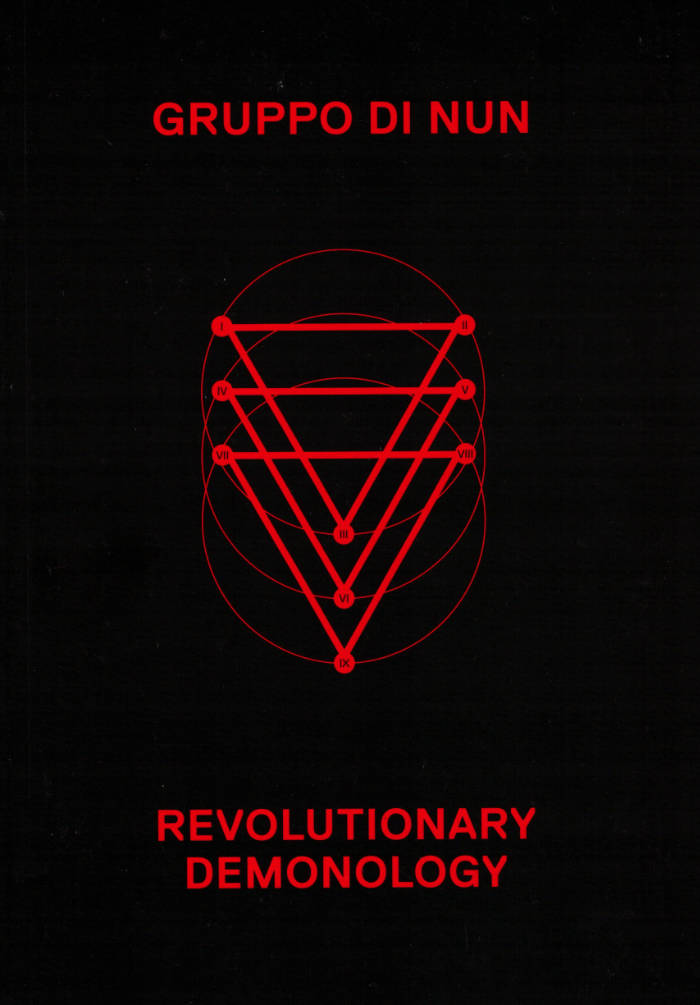
Enlevés À Bougie
Enlevés à Bougie is a visual archive compiling documents from the kidnapping of a French state employee during the War of Independence, in 1960, Bougie, Algeria.
Language: French

Enlevés à Bougie is a visual archive compiling documents from the kidnapping of a French state employee during the War of Independence, in 1960, Bougie, Algeria.
Language: French

“RUSTIQUE” is an artist book created by Nicola Godman. This book is sprung out of a residency in September 2021 at Hôtel Chevillon, a former Scandinavian artist colony in Grez-sur-Loing, France. Barbizon, the village where the painter Jean-François Millet (1814–1875) lived and died, is located 20 km away from there. The book interweaves the life and work of Millet with Godman’s photographs, drawings and personal anecdotes.
“RUSTIQUE” wishes to put forward the artistic gaze towards rural life by artists who themselves are born peasants. Nicola Godman (b. 1989, Rute) is an artist working with photography, video, books and stories, currently based in Stockholm, Sweden. Having grown up on an organic dairy farm, she is researching depictions of rural life in art history and contemporary culture.

Michel Foucault offers an iconoclastic exploration of why we feel compelled to continually analyze and discuss sex, and of the social and mental mechanisms of power that cause us to direct the questions of what we are to what our sexuality is.

"The Pain Journal" is the last finished work by Los Angeles writer and artist Bob Flanagan and is the extraordinary chronicle of the final year of his life before his death from cystic fibrosis at the age of 43. Flanagan created performances with Sheree Rose that shocked and inspired audiences as he combined text, video, and live performance to create a highly personal exploration of childhood, sex, illness, and mortality.

What can we know, and what remains beyond our reach?
In 1979, Annie Dillard witnessed the solar eclipse in Yakima, Washington. In Total Eclipse this celestial event becomes a metaphysical reckoning. With lyrical precision and eerie clarity, Dillard unforgettably evokes the strangeness of the shifting sky and the psychic dislocation that descends with the shadow.
The quiet yet epic unravelling of the familiar becomes revelation: a rupture in time, a confrontation with mortality and a brush with the sublime. Juxtaposing the cosmic and the mundane, Total Eclipse meditates on the limits of perception and language, entering the surreal intensity of the phenomenon to emerge with the brief, blazing clarity offered by darkness.
Foreword by Himali Singh Soin
Images by Mark Lowe

An anthology of occult resistance: unpredictable and fascinating, at times hallucinatory, sullying politics, philosophy, cybertheory, religion, and music.
The End Times are here. The Digital Middle Ages approaches, the plague reaps its deadly harvest, climate apocalypse is around the corner, and fanaticism, fascism, and madness are rampant. The idea that we might gain the upper hand over the dark abyss into which the planet is tumbling is a form of magical thinking, laboring under the delusion that we can subdue eternity with relentless bloodlust, brutish exploitation, abuse of power, and violence. Revolutionary Demonology responds to this ritual of control, typical of what esoteric tradition calls the “Dogma of the Right Hand,” by reactivating the occult forces of a Left Hand Path that strives for the entropic disintegration of all creation, so as to make peace with the darkness and nourish the Great Beast that will finally break the seals of Cosmic Love.
Unpredictable and fascinating, genuinely bizarre, at times hallucinatory, sullying politics, philosophy, cybertheory, religion, and music alike with its fevered touch, this “anthology of occult resistance” collects together the communiqués of an arcane group who are already being hailed as the first morbid blossoming of “Italian Weird Theory”: a rogue contingent of theorists, witches, and sorcerers who heretically remix gothic accelerationism with satanic occultism and insurrectional necromancy.

A collection (montage) of biographies and themes written by Jairus Banaji.
Wanting Something Completely Different discusses a range of political figures, themes, directors and writers in a series of brief, evocative descriptions ('vignettes') aimed at laying out a vision of a modern, cosmopolitan left that can think creatively about the world we live in. The political figures include both thinkers and activists from a wide range of backgrounds—from Frantz Fanon and the Palestinian novelist Ghassan Kanafani to the theologian Dietrich Bonhoeffer and the murdered Russian journalist Anna Politkovskaya. The themes range equally widely from the death of Walter Benjamin (reconstructed here from a remarkable documentary on the same theme) and the slaying of Pasolini to the work of British Marxist Perry Anderson, or the corrupt nature of India's leading corporate groups, or the outstanding contributions of Italian and U.S. Black feminists to feminist theory. And under the rubrics which discuss film and literature, there is the same striving for diversity and depth.
The vignettes collected in this Rab-Rab book first circulated on Facebook over some seven years or more and are reproduced here with a new introduction and extensive bibliographical references and notes.
Jairus Banaji is a historian and revolutionary Marxist activist. He received the Isaac and Tamara Deutscher Memorial Prize in 2011. His academic work has ranged widely across sources and languages, with major books on Late Antiquity and commercial capitalism as well as numerous papers and articles.